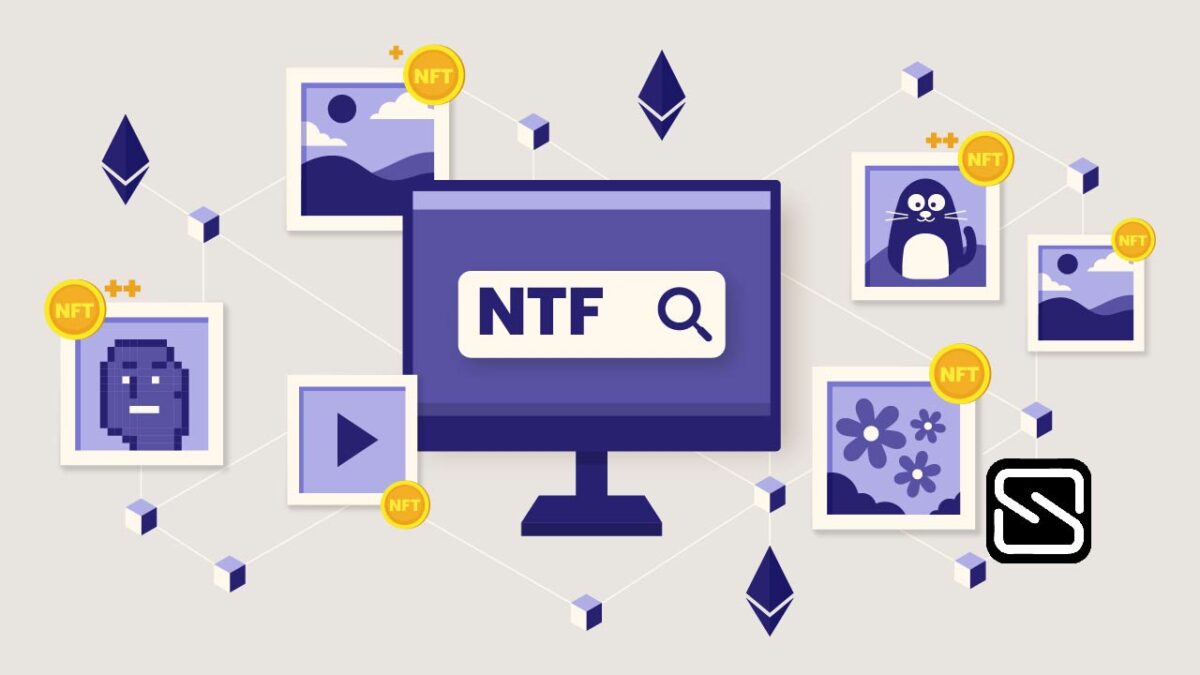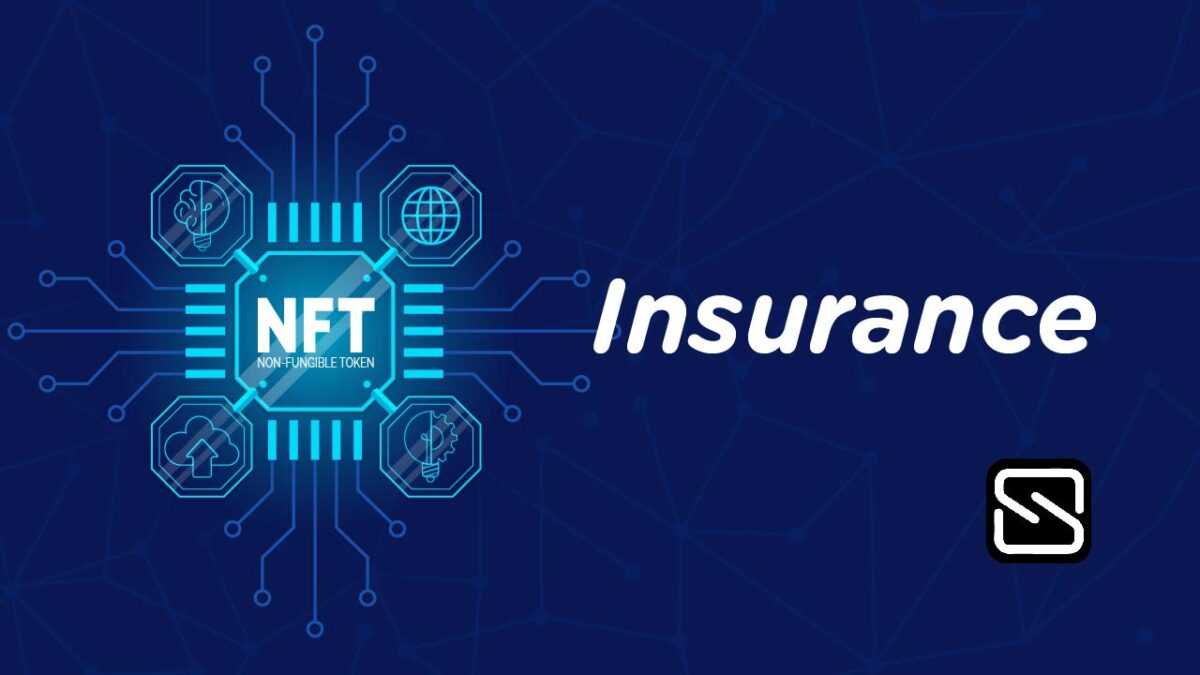By putting up a security deposit in the form of collateral, crypto lending services allow you to borrow and invest funds in the form of digital currency or fiat money. This can be useful for fast raising funds without having to sell your crypto assets.
We present the five top crypto loan sites for 2022 in terms of fees, LTV ratios, minimum and maximum requirements, and funding conditions in this article.
The sites include;
- Aqru – Overall Best Crypto Loan Site for Investors
- Crypto.com – Competitive APRs on Loans Against Cryptos
- BlockFi – Top Provider for Instant Bitcoin Loans at Low Fees
- Nexo – Over 30+ Tokens Supported for Crypto Collateral Loans
- YouHodler – High LTV Ratio of 90% on Crypto-Backed loans
When looking for the best Bitcoin loan platform for your needs, look into the interest rates that will be charged, as well as the terms and conditions that will apply to the funding arrangement.
Furthermore, you should think about the site’s LTV ratio, as this will determine how much you can borrow against your security deposit.
The following are the top five crypto loan sites with the best terms on the aforementioned aspects.
- Aqru; Overall Best Crypto Loan site for investors.
Look no further than Aqru if you’re seeking for the greatest crypto loan site in terms of investment. This crypto yield farming tool allows you to generate a 12 percent income on stablecoins like USDC and Tether. Furthermore, if you have an allocation of Bitcoin or Ethereum, Aqru will pay you 7% every year.
Not only does this give one of the finest rates on the market, but all Aqru crypto savings accounts are adjustable. This means you don’t have to keep your digital assets for a certain amount of days or weeks, and you can request a withdrawal at any moment. Aqru claims it can provide such high APYs on its crypto interest accounts because it uses your digital currency to fund loans to both institutional and retail clients.
In other words, individuals who use Aqru’s crypto loan facility will pay a higher rate of interest than those who use the APY given. We especially appreciate Aqru because of its simple yet incredibly intuitive mobile app, which is available for free on the App Store and Google Play. This is linked to your primary Aqru account, allowing investors to check the value of their cryptocurrency savings accounts at any time. Finally, Aqru accepts deposits in fiat currency, so you can get started even if you don’t have any cryptocurrency.
- Crypto.com – Competitive APR on Crypto and loans
If you’re searching for the best crypto loan sites to borrow funds quickly and at competitive rates, look no further than Crypto.com. Although you may be familiar with Crypto.com for its user-friendly exchange services, it is also one of the major suppliers of crypto loan and interest accounts. There are no credit checks when taking out a crypto loan through this platform.
Crypto.com, like the majority of the crypto lending businesses, merely asks for a security deposit. In terms of specifics, Crypto.com provides a maximum LTV of 50%. This means that if you wanted to borrow $1,000 (3.5M Ugx) in cryptocurrency, you would only have to put up $500 (1.7M Ugx) in collateral. Another thing to keep in mind concerning Crypto.com loans is that your fees will be determined by your willingness to stake CRO, the platform’s native digital currency.
Without staking crypto, the APR on stablecoins, for example, averages 12 percent. To get this down to 8%, you’d have to stake a stunning $40,000 in CRO tokens. This is where Crypto.com really shines when it comes to supported loan markets. From Bitcoin, Ethereum, Litecoin, and EOS to Cardano, Chainlink, Polkadot, and Solana, this encompasses everything. Finally, Crypto.com, like Aqru, has a browser-based platform as well as an iOS/Android app.
- BlockFi – Top Provider for Instant Bitcoin loans at low fees
If you’re looking for a crypto loan platform, BlockFi is an excellent option. BlockFi is one of the greatest sites in the market for 2022 if you’re seeking quick Bitcoin loans with cheap costs. In a word, by pledging 50% LTC as collateral, you may borrow Bitcoin at a fantastic APR of 4.5 percent. Furthermore, you can agree on a duration of up to 12 months for your immediate Bitcoin loan, giving you a lot of freedom when it comes to repaying the funds.
This top-rated crypto lending platform also has the advantage of allowing you to repay your loan early without paying a fee. BlockFi also accepts Ethereum, Litecoin, and PAX Gold in addition to Bitcoin. When compared to sites like Crypto.com, however, this list of supported digital assets is sparse. Nonetheless, if you’re searching for an all-in-one crypto environment, we think BlockFi is a terrific choice.
For example, the site not only allows you to get low-cost crypto loans, but it also allows you to earn interest on your idle digital money. BlockFi also has a leading cryptocurrency exchange where you can purchase and sell crypto tokens with a single click. You might also apply for the BlockFi credit card, which allows you to use your crypto assets to purchase goods and services online or in-store. On qualified purchases, you’ll also get a 1.5 percent cashback.
- Nexo – Supports over 30+ tokens for crypto collateral loans
When it comes to supported tokens for the purpose of providing collateral, Nexo is one of the best crypto loan services. When setting up your security deposit, you have the option of selecting from over 30 different digital currencies, giving you a lot of freedom. This contains Uniswap, Dogecoin, The Graph, and Decentraland, as well as Bitcoin, Ethereum, Solana, and Tether.
The amount of LTV necessary for your security deposit will vary depending on the currency. For example, if you use Bitcoin or Ethereum as collateral, the LTC is 50%. This is lowered to 30% when using a less liquid coin such as The Graph or Decentraland. Nonetheless, we like that Nexo gives you the option of receiving your loaned funds in a variety of assets, including more than 40 fiat currencies and dozens of digital tokens.
When it comes to costs and prices, there are no origination fees associated with applying for a loan. APRs will range from 0% to 13.9 percent, but the exact rate will be determined by a number of criteria, including the loan’s length and the asset you intend to borrow. Nexo additionally appeals to us because of its rapid approval service and the fact that you can set your own repayment schedule. This implies that, unlike traditional loans, you will not be bound by a monthly payback schedule.
- YouHolder – High LTV Ratio of 90% on Crypto-Backed loans
So far, the crypto loans providers we’ve looked at have an average LTV ratio of 50%. However, this pales in comparison to YouHodler’s 90 percent guarantee. To put it another way, if you wanted to borrow $900 from the YouHodler platform, you simply needed to put up $1,000 in collateral. As a result, YouHodler allows you to get the most out of the money you have.
YouHodler is preferred since it supports over 40 different digital assets as well as a variety of fiat currencies. This means you can use crypto as collateral and obtain fiat money or digital tokens in exchange. When using the YouHodler website to borrow money, the minimum amount required is only $100. Furthermore, APRs are determined by a number of factors, including the token you use as collateral, the asset you receive as part of the loan, and the term length.
YouHodler, on the other hand, has a very easy online calculator that shows you the various rates for each statistic. Furthermore, we appreciate the fact that YouHodler provides infinite loan lengths, allowing you to choose your own repayment schedule. It’s worth downloading the YouHodler app to your smartphone to ensure that your LTC ratio stays within the acceptable limits. You can keep track of whether you need to top up your security deposit based on market conditions by doing so.
How do Crypto Loans work?
This section will explain the fundamentals of crypto loans if you’re unfamiliar with the concept.
First and foremost, you must obtain a crypto loan through a third-party source, such as those listed in the preceding sections.
The details of the loans on offer will be specified by each provider, including APRs and repayment deadlines. The highest LTV available and which tokens you can use as collateral will be stated by the crypto loan provider.
It’s better if we go through these keywords in greater depth so you understand how crypto lending sites work before you sign up for one.
Collateral
In a word, if you’re wondering how crypto loan companies can approve your funding request instantaneously without performing a credit check on you, it’s because all agreements require collateral.
This implies that before you can get your hands on the money, you’ll have to put down a security deposit. The percentage amount necessary will also be determined by the LTV.
Before we get into the details of the LTV, it’s important to realize that the best crypto loan sites for 2022 accept a diverse range of assets as collateral.
This means you won’t need to go via an exchange to get a qualified cryptocurrency if the digital token you’re already holding is supported.
Receiving Asset
The greatest crypto loan businesses in the industry give you the option of receiving your payments in either fiat money or digital tokens.
For example, if you need cash and don’t want to liquidate your digital token holdings, you can choose to receive your earnings through a bank transfer.
You can also choose to get the payments in digital tokens if your aim for taking out a loan is to grow the amount of cryptocurrency you hold (more on this later).
APR (Annual Percentage Rate)
Since crypto lending sites are in the business of making money, you will have to pay interest in order to borrow funds. This will be expressed as a percentage of the APR (Annual Percentage Rate).
The loan agreement is more competitive for you if the APR is lower.
LTV (Loan to Value)
LTV (Loan to Value) is a term used by crypto loan businesses to describe the amount of money you can borrow in relation to the size of your collateral.
LTVs of up to 50% are available at Crypto.com, for example. As a result, if your security deposit is $2,000 in Bitcoin, you may be eligible for a $1,000 loan.
The LTV at YouHodler might be as high as 90%. This means you can borrow up to $1,800 with the same $2,000 security deposit.
Types of Crypto Loans
There are various different types of crypto loans available on the internet, which we go over in greater detail in the sections below:
Crypto Collateral Loans
Almost every crypto lending site you come across will need collateral, with the exception of the odd outlier. After all, this is the only way the platform can approve a loan without checking your credit.
Crypto Loans without Crypto
You will be disappointed if you are looking for crypto loans with no collateral. This is because, in today’s crypto-backed financing ecosystem, all platforms require a security deposit before approving a loan.
With that stated, as decentralized finance (DeFi) capabilities increase, there is a good probability that in the not-too-distant future, users may be able to obtain crypto loans without the need for collateral, credit checks, or verification documentation.
It’s also worth noting that a small handful of platforms now offer anonymous bitcoin loans. None of these platforms, however, have a good reputation in the industry. As a result, after registering with the top crypto loan sites on the market, you will be required to go through a brief KYC process.
Crypto Flash Loans
There is a small exception to the rule that crypto loans cannot be obtained without collateral. This is because a concept known as crypto flash loans is now supported by numerous DeFi platforms.
In a word, this allows you to borrow cryptocurrency through a smart contract arrangement without having to put up any collateral.
However, there is a catch to these short-term crypto loans: if the money is not repaid within the agreed-upon deadline, the smart contract will reverse the transaction.
Custodial Vs Non Custodial Crypto Loans
When learning how crypto loans work, the next thing to consider is whether you want to use a custodial or non-custodial platform.
In layman’s terms, if you use a custodial crypto lending service, you’re dealing with a centralized platform.
In other words, the platform will handle deposits and withdrawals, loan fund distribution, repayments, interest rate and LTV setting, and more.
Custodial services are available on all five of the finest crypto loan sites we evaluated today.
Non-custodial crypto lending websites, on the other hand, are decentralized. This is because, as we discussed in the section on crypto flash loans above, the funding arrangement is carried out through a smart contract.
How to minimize risk with Crypto Lending?
When compared to typical lending choices, the crypto lending industry is still relatively young, which means there is an added level of risk when attempting to achieve the higher yields on offer. Because crypto lending entails entrusting your funds to third parties, there is always the risk that they will default, leaving you out of money. There are, however, some techniques you can do to reduce the possibilities of this happening.
For starters, rather than using just one DeFi lending network, you can sign up and deposit your crypto with several. This strategy allows you to spread the risk across multiple platforms, which implies that if one platform experiences non-payment or default, the others are likely to compensate. The sign-up process for most of the finest crypto apps that provide these services is streamlined, making it quick and easy to diversify in this way.
Another option is to exclusively collaborate with well-known and respected platforms. These platforms ensure that third parties who use your cryptocurrency are monitored and appraised in advance, lowering the risk of non-payment. Finally, certain platforms may contain a reserve fund that is activated if a borrower defaults, providing lenders with an additional layer of security.
What Crypto Currencies can I borrow?
What digital tokens you can use to get a crypto loan will ultimately be determined by the platform you choose. For example, although some of the crypto lending services we studied before accept dozens of digital currencies as collateral, others just accept a few.
Having said that, almost all major crypto loan sites will accept Bitcoin and Ethereum as collateral payments. Tether and USDT are examples of stablecoins that are often supported.
If you’re currently holding a less liquid digital asset and your crypto loan site allows it, your LTV ratio may suffer as a result.
For example, Bitcoin security deposits at Nexo will get you access to a maximum LTV of 50%. When depositing Decentraland, however, this is lowered to 30%.
The good news is that there is a simple solution in place if your favorite platform does not support the digital currency you already hold – or if the associated asset does not deliver your desired LTV.
That is, you can easily exchange your present tokens for a large-cap digital asset such as Bitcoin.
How to borrow Crypto Currencies?
If you’re ready to start earning interest on your idle digital token holdings by lending bitcoin, the instructions below will get you set up with Aqru in under five minutes.
Step 1: Open an Account
As previously said, all legal crypto lending services will ask you to create an account. Aqru is no exception in this regard.
As a result, the first step is to go to the Aqru website and offer your personal information to the platform.
After that, you’ll have to go through a brief verification process that only requires you to upload some identification.
Step 2: Deposit Crypto or Fiat
After you’ve created an account, you’ll be prompted to make a deposit. Aqru accepts Bitcoin, Ethereum, and a number of stablecoins as deposits. You can also make a fiat money deposit of at least €100.
Step 3: Earn Interest from Crypto loans
After you’ve placed a crypto deposit, you’ll start earning a 7% APY on Bitcoin and Ethereum, and a 12% APY on stablecoins.
You can choose which crypto savings account you want to convert your funds to if you financed your account with fiat money.
Are Bitcoins safe?
Crypto loans are never 100 percent safe from the standpoint of both borrowers and investors. As a result, as compared to traditional financial institutions, the finest crypto loan services are able to provide far better terms.
For Example
If you want to borrow money from a crypto loan service, you’ll have to put your digital tokens up as collateral. The obvious risk is that you are entrusting your security deposit to the website in question.-
The major risk to be aware of as an investor is that your funds will be used to enable crypto loans. And, as with any loan, there is always the possibility that the borrower would default.
This is why it’s critical to complete your research before choosing the best crypto loan site for you. Consider spreading your portfolio over multiple platforms to lower your risk of losing money.
In conclusion, the top cryptocurrency lending sites serve as a conduit between borrowers and investors.
If you’re seeking a loan, your application will be granted right away, with no credit checks or financial proof required. Instead, a security deposit in the form of collateral is all that is required.








